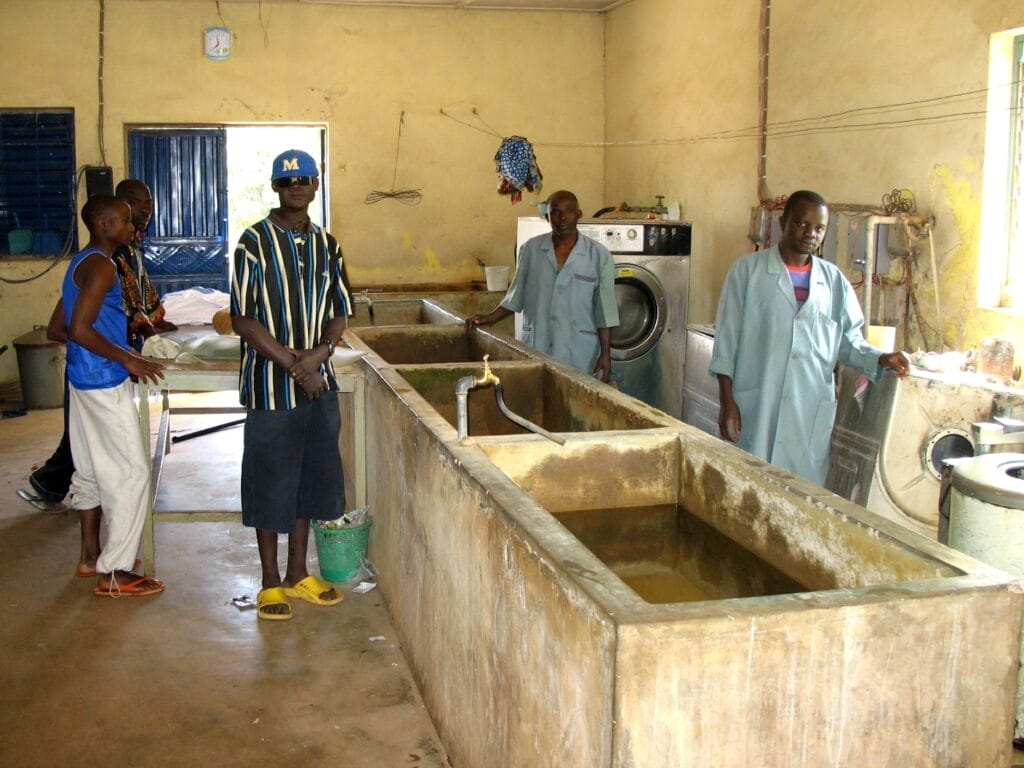Obinna Ejide
Port Harcourt, Rivers State, Nigeria

A brilliant young student at the University of Calabar in Cross Rivers State, Nigeria, died recently during a strike of the doctors at the university teaching hospital. This is not the first time that such an incident has occurred in Nigeria. In September 2017 a pregnant woman died in the national hospital, Abuja, during a strike by the health care unions of professionals. By the time the strike was called off it had already claimed the life of another patient, a fire victim who died from a neglected infection. Another patient died a few weeks after being forcefully discharged from the hospital during a strike action in 2014; and the chairman of the department of pathology at the University College Hospital reportedly died on his way to a private hospital because he was unable to receive medical attention at the hospital where he worked. The list is endless, making unusual what should be an aberration.
Reflecting on the failure of the federal government of Nigeria to prioritize the needs of the country, I wonder what can be done to end this destructive way of managing the healthcare sector. I am further dispirited by the number of medical doctors who have left or are planning to leave Nigeria for the Middle East (Saudi Arabia, UAE), Australia, Europe (UK), North America (US and Canada), and even other parts of Africa (South Africa). There are no official statistics on the migration rate from the federal government, but stakeholders in the health sector have estimated numbers that are very saddening. Resident doctors lament that twelve of their colleagues leave Nigeria every week to practice abroad; and polls conducted in 2017 reveal that 88% of medical doctors are seeking work opportunities abroad. This is heavily impacting the current workforce, which produces only about 0.37 medical doctors per 1000 people.
Yet it is hard to blame these doctors for wanting to leave. In fact, they might be hailed for their courage to have accepted the challenge to go to medical school in Nigeria in the first place. It could be viewed as an attestation of their resilience—or, one may argue, ignorance. For in a recent article titled “Why Would Anyone Want to Become a Doctor?” Dr. Odoemena described the situation as follows:
“After medical school, you have to do the compulsory one-year internship. There are fewer accredited places for internship than the number of medical graduates. Even those with accreditation lack the funds to absorb. So, you find fresh doctors staying more than a year, even up to two years to get placement. And by the Medical and Dental Council law, if you do not do the internship within two years of graduating, you [must] write a council exam. Even after the compulsory National Youth Service Corps scheme, doctors still look for work. Many doctors who want to become specialists, have passed their primaries, but cannot get anywhere to do their residency programme. I know some who have given up on that dream after many years of attending fruitless interviews. [Most] doctors, many with primaries, are doing one locum or the other in a private hospital where they are paid as low as ₦60,000 [$163] per month.”
The root cause of this menace is not hard to find: the budgetary allocation for healthcare in Nigeria is appalling. For instance, in 2018 the budgetary allocation to the Federal Ministry of Health was ₦340.456 bn (~$928 million), representing a paltry 3.95% of the total budget, a far cry from the 15% minimum allocation target set by the African Union for its member countries. In 2019 the figure is ₦365.7 billion, of which about ₦315 billion will be used for recurrent expenditure, the rest for capital expenditure. Between the years 2010 and 2019, the average percentage of health budget against the national budget has ranged from 3.9 to 5.8%. The same pertains to the educational sector where medical students, amongst other professionals and non-professionals, are trained. Meanwhile huge amounts are wasted on medical tourism by public service office holders and their families. For instance, it is reported that Nigeria spends $1 billion (~ ₦367 billion) annually on medical tourism, the equivalent of the entire budget allocation to the healthcare sector in 2019; and President Buhari, who had at one time urged politicians not to seek medical care abroad, was on his fifth trip to the UK to see a doctor there. At the same time, Nigeria’s poor masses cannot even afford basic health care services, a sad reflection on the state of affairs in this country.
References
- “How Strikes are Killing Nigeria’s Public Health System,” Ventures Africa, Published January 17. 2015, http://venturesafrica.com/this-is-would-happen-to-nigerian-banks-if-the-naira-is-devalued/.
- Nike Adebowale, “Brain Drain: About 12 doctors leave Nigeria weekly — Resident doctors,” Premium Times, November 27, 2018, https://www.premiumtimesng.com/health/health-news/297785-brain-drain-about-12-doctors-leave-nigeria-weekly-resident-doctors.html.
- Dr. Odoemena, “[Opinion] Why Would Anyone Want To Become A Doctor?,” Information Nigeria, Published January 11, 2013, https://www.informationng.com/2013/01/why-would-anyone-want-to-become-a-doctor-after-seeing-this.html.
- Martins Eke, “Challenges of healthcare financing in Nigeria,” The Punch, Published April 27, 2018, https://punchng.com/challenges-of-healthcare-financing-in-nigeria/.
- Damilola Ojetunde, “Nigeria remains perpetual defaulter of the ‘Abuja Declaration’ on health funding,” International cenre for Investigative Reporting, Published January 1, 2019, https://www.icirnigeria.org/nigeria-remains-perpetual-defaulter-of-the-abuja-declaration-on-health-funding/.
- “‘Nigeria spends $1bn annually on medical tourism’,” The Punch, Published October 14, 2016, https://punchng.com/nigeria-spends-1bn-annually-medical-tourism/.
OBINNA NNAEMEKA EJIDE is a final year MBA (Marketing) Candidate of the Faculty of Business Administration, University of Lagos, Akoka-Yaba, Nigeria. Currently serving as a Postgraduate Research Intern (Social Performance) in Shell Petroleum Development Company of Nigeria Limited, Port Harcourt-Nigeria, his interests include business strategy development and sustainable development studies.
Highlighted in Frontispiece Volume 14, Issue 2 – Spring 2022
